Does Testosterone Cause Hair Loss In Humans? How To Treat It
The science behind testosterone-linked hair loss and strategies for restoration
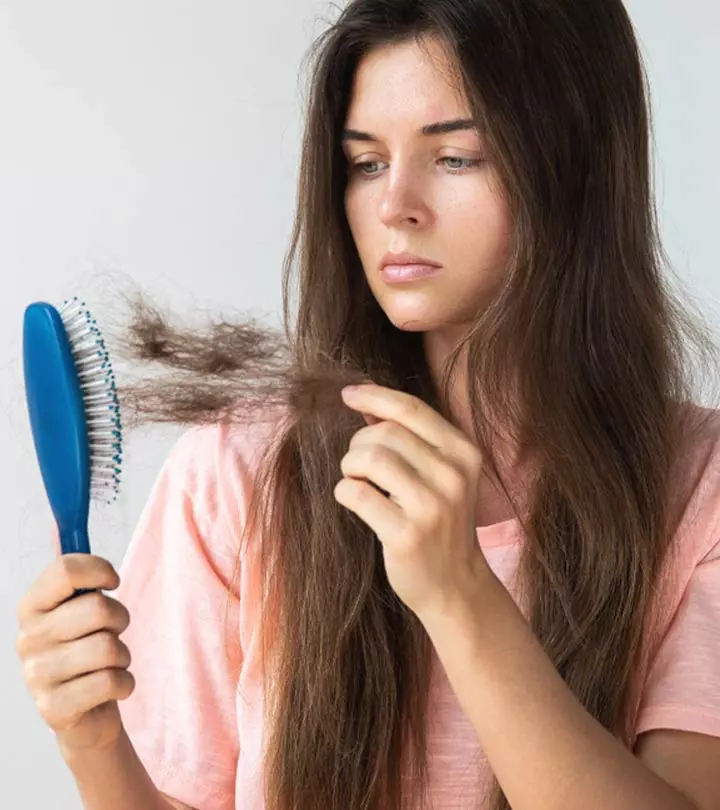
Image: Shutterstock
Blame it on the hormones if you are losing way too much hair, as they are one of the many factors responsible. Especially testosterone hair loss, leading to androgenic alopecia (female and male pattern baldness). Are you wondering how a male sex hormone can cause hair loss in women? The fact is that women also contain testosterone in trace amounts that may affect hair health. But how? This article digs deeper into how this hormone is associated with hair loss and how to manage the condition. Keep reading.
In This Article
The Role Of Testosterone In Humans
The testosterone hormone is an androgen found in men and women. In men, testosterone regulates fertility, red blood cell distribution, muscle mass, and fat distribution. Women’s ovaries produce testosterone in small amounts. It combines with estrogen (the female sex hormone) to help with the growth, repair, and maintenance of the reproductive tissues and bone mass.
Testosterone also impacts scalp hair growth in both men and women. Let’s find out how in the following sections.
Effect Of Testosterone On Hair Growth In Men
DHT or dihydrotestosterone, produced by testosterone and the enzyme 5-alpha reductase, causes hair loss in specific areas of the scalp and controls hair growth in androgen-sensitive areas in older men (1). Androgenic sensitivity in the scalp causes the hair follicles to shrink, leading to androgenic alopecia. You may notice balding on the frontal hairline, vertex, and complete balding.
Effect Of Testosterone On Hair Growth In Women
The role of androgens, especially testosterone, in female pattern hair loss is not clear (2). Female pattern hair loss is more likely to be caused by androgen metabolites like Di Hydro-epi-androsterone (DHEA) and androstenedione (1).
Androgenic alopecia in women occurs mostly in the parietal area. Some women may experience excess hair growth due to androgen production, and the condition is called hirsutism. It affects close to 5% of women (1).
Traditionally, testosterone takes most of the blame for hair loss. But research suggests that the active androgen DHT is to be blamed (3). Androgens regulate hair growth not only on the scalp but also on the entire body.
How Testosterone And Androgens Regulate Hair Growth
The hair follicles contain unique genetic codes (1). These codes regulate when, on which body part the hair will grow or fall, and what triggers will cause that. These genetic codes decide which part of the body will be androgen sensitive. In other words, even if your androgen levels are normal, androgen sensitivity may cause hair loss.
DHT or dihydrotestosterone, an androgen and a byproduct of testosterone through the enzyme 5-alpha reductase, causes hair loss (4).
A rise in androgen levels during pregnancy may also cause telogen effluvium (excessive hair fall) in postpartum women. During pregnancy, there is a variation in androgen, estrogen, and prolactin levels. (5). After the delivery and when the placenta is removed, these hormone levels normalize. Such drastic changes in the hormone levels, coupled with stress (both physical and mental), cause postpartum hair loss, which is noticed a few weeks after delivery.
Hyperandrogenism in women also impacts their skin and hair growth. Androgen imbalance, especially testosterone production, can cause hirsutism in women. This condition is marked by excessive hair growth in a male-like pattern.
Other than the hair growth, androgens can also affect the entire hair cycle. Scroll further to understand how.
Understanding Androgens And The Human Hair Growth Cycle
The hair growth cycle has four stages:
- Anagen (growth phase)
- Catagen (regression phase)
- Telogen (resting phase)
- Neogen/Exogen (when the hair falls out and new growth starts
Androgen levels can interrupt this cycle at any time and cause hair loss.
High Testosterone Vs. Low Testosterone
Low and high androgen levels can cause the hair follicles to stop growing new hair shafts (6). This prevents hair growth but allows old hair to fall out, causing pattern hair loss.
The connection between testosterone levels and hair loss in men and women varies. Men incur hair loss when there is an overproduction of the DHT hormone.
Research shows that women with low or high androgen levels have hair growth issues. While excess androgen may cause excess hair growth in women, a study found that serum testosterone levels are lower in women experiencing hair thinning (7) (3).
Abnormal androgen levels may also cause androgenic alopecia.
Androgenic Alopecia
Androgens also cause androgenic alopecia or female pattern hair loss in genetically susceptible women. This pattern of hair loss in women occurs because of the genetic predisposition of androgenic sensitivity in hair follicles.
 Did you know?
Did you know?Testosterone replacement therapy is a common treatment option for testosterone-related hair loss. But, does it trigger hair loss?
Does Testosterone Replacement Therapy(TRT) Cause Hair Loss?
No. It is a misconception.
In this therapy, testosterone is administered in the form of injections. Research shows that TRT does not cause hair loss. Rather, TRT or Androgen Replacement Therapy promotes hair growth in androgen-deficit women (8) (3).
It is unlikely that you will experience hair loss while undergoing TRT. However, if you experience hair loss when on therapy, here is what you need to do.
What To Do If You Experience Balding When Trying TRT
Hair loss is a complex process and is caused by multiple underlying factors like insulin resistance, diabetes, and obesity. These factors can increase 5-alpha reductase in your body, triggering the conversion of testosterone into DHT. This may cause hair loss (8).
Other than these, age, alcohol consumption, medication, and sedentary lifestyle may also lower testosterone and increase DHT. These factors may contribute to hair loss while you are undergoing TRT (8).
This is why it is crucial to consult your doctor before starting TRT. They will determine whether you are fit to undergo the therapy or not. In case you have experienced hair loss during TRT, the doctor may suggest discontinuing TRT. They may also suggest a few other treatment options.
How To Treat Hair Loss Due To Testosterone
- In Men: The doctor may suggest using finasteride to manage androgenic alopecia or male pattern hair loss. An optimal dose of 1 mg/day can treat male pattern hair loss (9).
- In Women: Anti-androgens like cyproterone-acetate and topical minoxidil are effective in treating female pattern hair loss (2).
- There are various non-surgical treatment options available, such as mesotherapy, platelet rich plasma therapy, and hair growth factor therapy, to improve circulation in the scalp and stimulate hair growth.
- Hair transplant is a surgical procedure usually considered in the advanced stages of hair loss. The grafts of hair roots from the back of the head are implanted into the thinning areas in the front and vertex, which grow naturally in 6 to 8 months.
 Pro tip
Pro tipExamine the link between hair loss and low testosterone with this video. Watch it to find out the science behind it, and determine whether this hormone imbalance is associated with hair loss.
Testosterone is an important hormone that plays a role in men’s fat and muscle mass distribution and the growth and repair of reproductive tissues in women. Research indicates that dihydrotestosterone (DHT), a byproduct of testosterone, is responsible for hair loss in men and women. In addition, factors such as genetics, alcohol consumption, or medical conditions may lead to hair loss. While it is a myth that testosterone replacement therapy (TRT) may cause hair loss, studies suggest it boosts hair growth in women with androgen deficiency. So, if you suspect hair loss due to testosterone, consult your doctor.
Frequently Asked Questions
How can I regain testosterone?
A balanced diet, regular exercise, and nutrient supplementation can help restore the normal levels of testosterone.
Do tall guys have more testosterone?
There seems to be no link between testosterone and height.
Does zinc increase testosterone?
Yes, zinc supplementation has been shown to improve serum testosterone levels (10).
Do omega-3 fatty acids increase testosterone?
Yes, omega-3-rich foods like fish have been shown to help improve testosterone levels (11).
Does vitamin D raise testosterone?
Yes, studies have shown that testosterone levels may increase with vitamin D supplementation (12).
Key Takeaways
- Testosterone and its byproduct DHT can influence hair loss and growth in both men and women.
- Along with testosterone levels, genetic factors also determine hair growth and loss patterns.
- Testosterone Replacement Therapy (TRT) is not directly linked to hair loss and may actually promote hair growth in androgen-deficient women.
- Treatments for testosterone-related hair loss include finasteride for men and topical minoxidil for women. There are also non-surgical options like mesotherapy and surgical options like hair transplants.
References
Articles on StyleCraze are backed by verified information from peer-reviewed and academic research papers, reputed organizations, research institutions, and medical associations to ensure accuracy and relevance. Read our editorial policy to learn more.
- Impact of Testosterone on Hair and Skin
https://www.longdom.org/open-access/impact-of-testosterone-on-hair-and-skin-2161-1017-1000187.pdf - Female pattern hair loss: Current treatment concepts
https://www.ncbi.nlm.nih.gov/pmc/articles/PMC2684510/ - Improvement in scalp hair growth in androgen-deficient women treated with testosterone: a questionnaire study
https://www.ncbi.nlm.nih.gov/pmc/articles/PMC3380548/ - Cause of androgenic alopecia: crux of the matter
https://www.ncbi.nlm.nih.gov/pmc/articles/PMC4174066/ - The Postpartum Telogen Effluvium Fallacy
https://www.ncbi.nlm.nih.gov/pmc/articles/PMC4908443/ - Androgen Actions On The Human Hair Follicle: Perspectives
https://onlinelibrary.wiley.com/doi/full/10.1111/exd.12024 - Epidemiological Assessment of Testosterone Levels in Women Population: A Factorial Analysis of Cell Proliferation
https://www.walshmedicalmedia.com/open-access/epidemiological-assessment-of-testosterone-levels-in-women-population-a-factorial-analysis-of-cell-proliferation-0974-8369-1000440.pdf - Testosterone therapy in women: Myths and misconceptions
https://www.sciencedirect.com/science/article/pii/S0378512213000121 - Use of Finasteride in the Treatment of Men With Androgenetic Alopecia (Male Pattern Hair Loss)
https://www.sciencedirect.com/science/article/pii/S0022202X15529357 - Zinc status and serum testosterone levels of healthy adults
https://pubmed.ncbi.nlm.nih.gov/8875519/ - Dietary supplementation with docosahexaenoic acid rich fish oil increases circulating levels of testosterone in overweight and obese men
https://pubmed.ncbi.nlm.nih.gov/33221700/#:~:text=DHA%2Denriched%20fish%20oil%20supplementation%20increases%20testosterone%20levels%20in%20overweight,a%20longer%20follow%2Dup%20period - Effect of vitamin D supplementation on testosterone levels in men
https://pubmed.ncbi.nlm.nih.gov/21154195/#:~:text=Our%20results%20suggest%20that%20vitamin%20D%20supplementation%20might%20increase%20testosterone%20levels
Read full bio of Dr. Rekha Yadav
Read full bio of Anjali Sayee
Read full bio of Eshna Das
Read full bio of Monomita Chakraborty






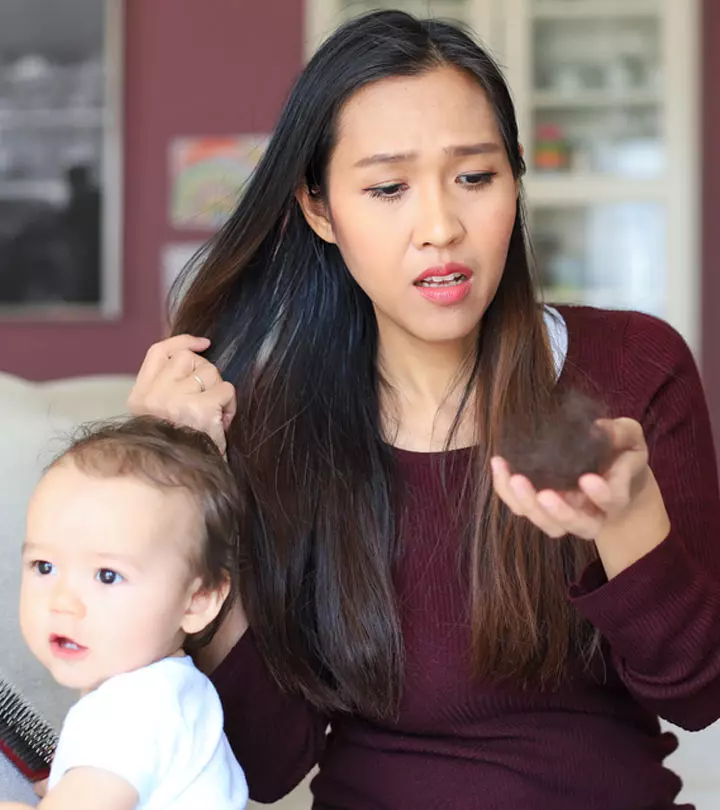
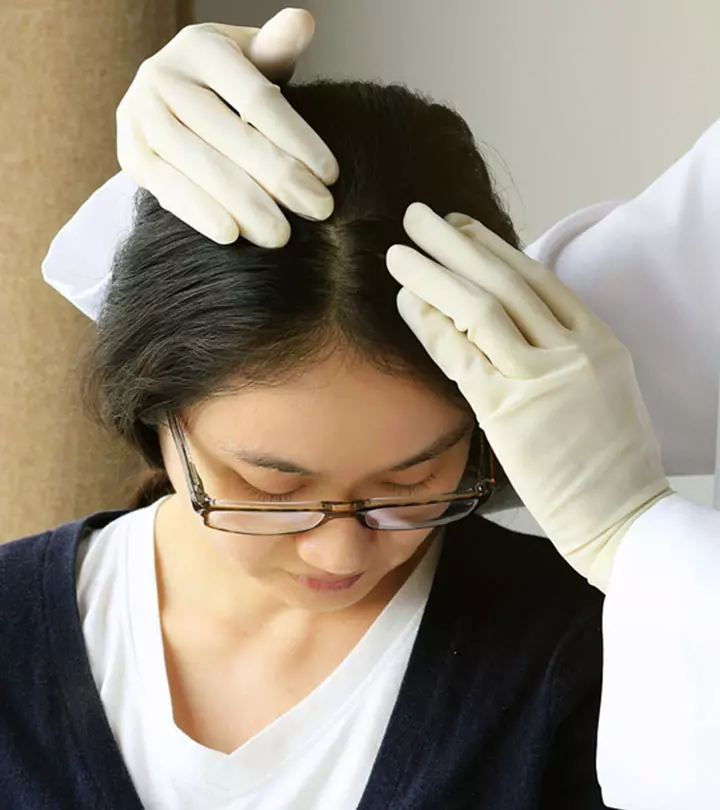

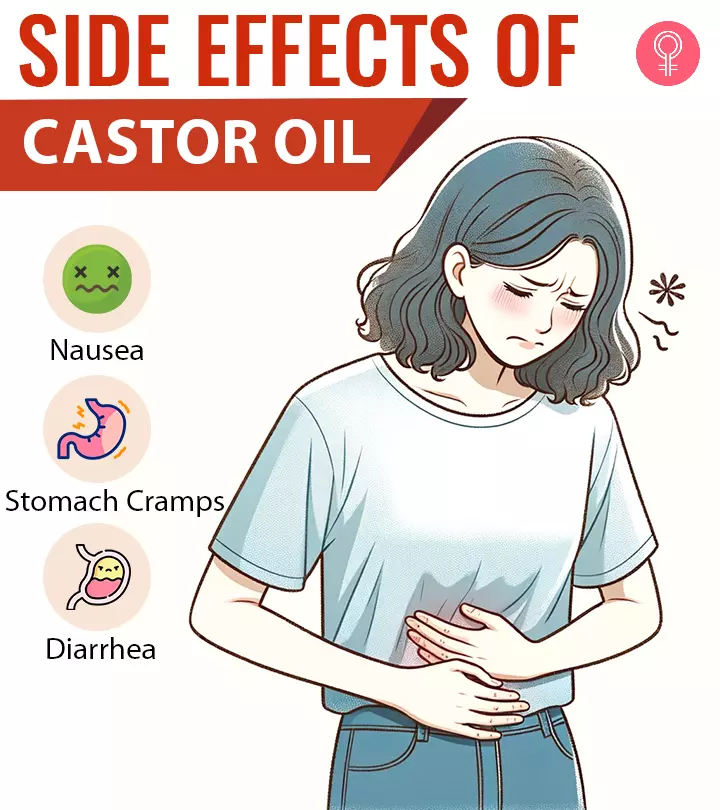



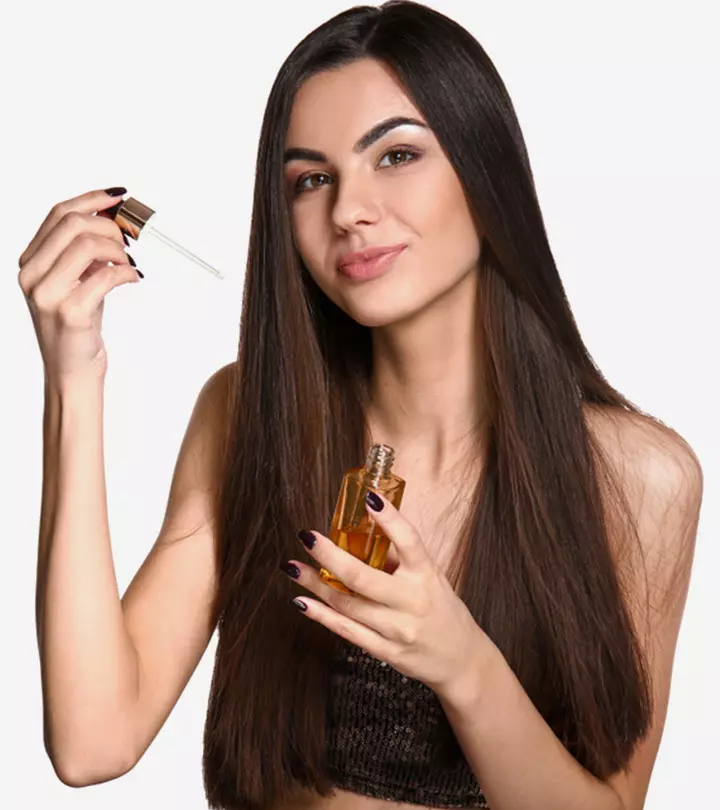



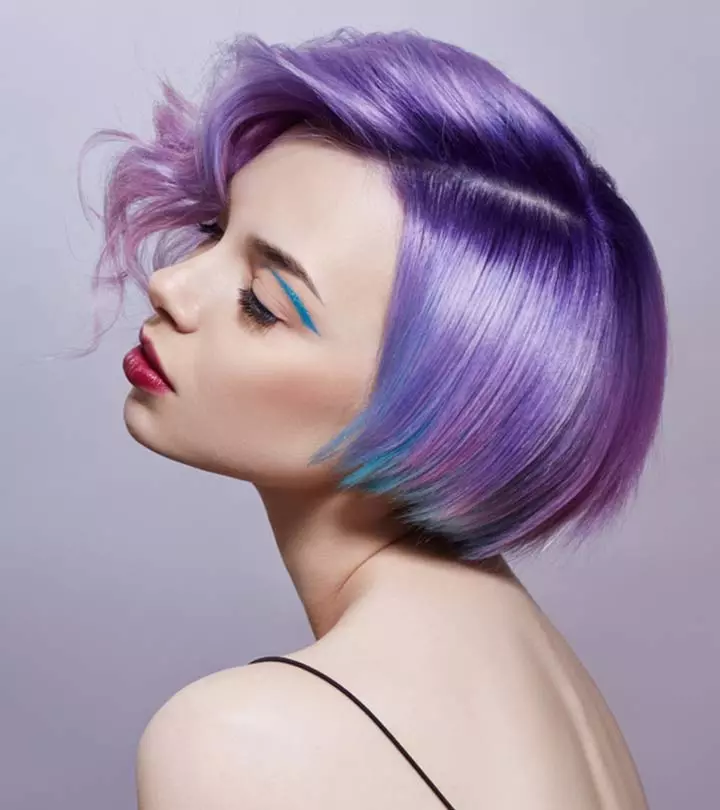
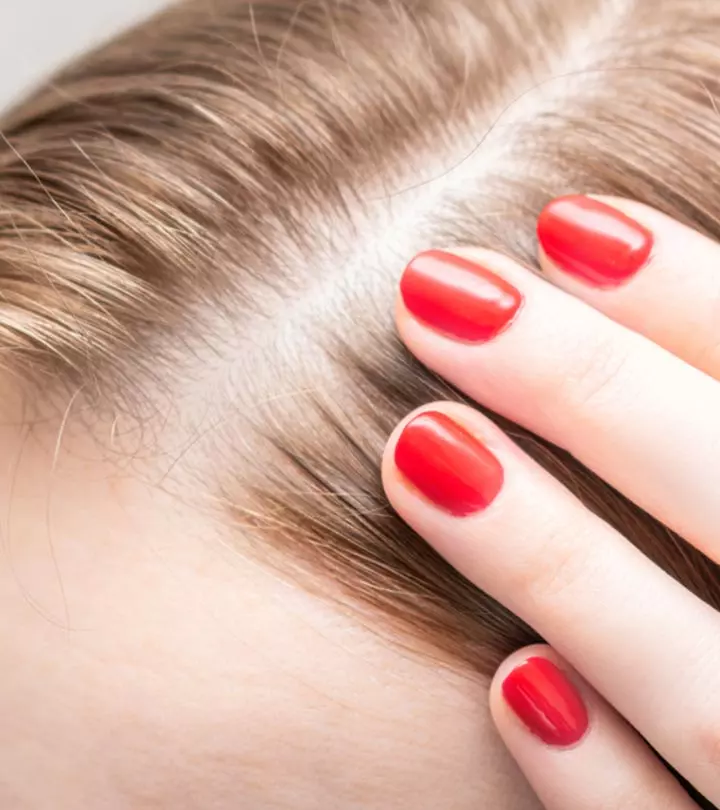
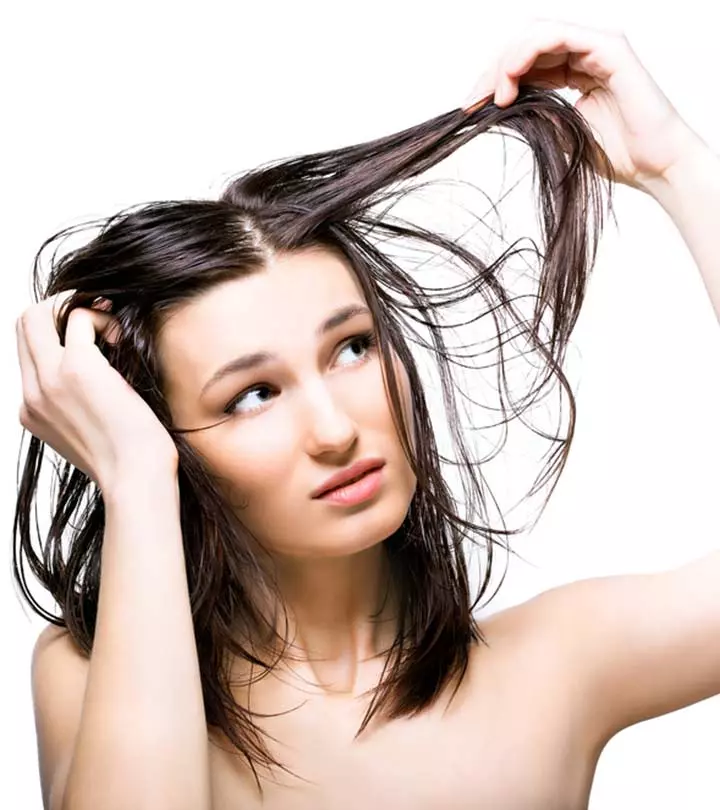



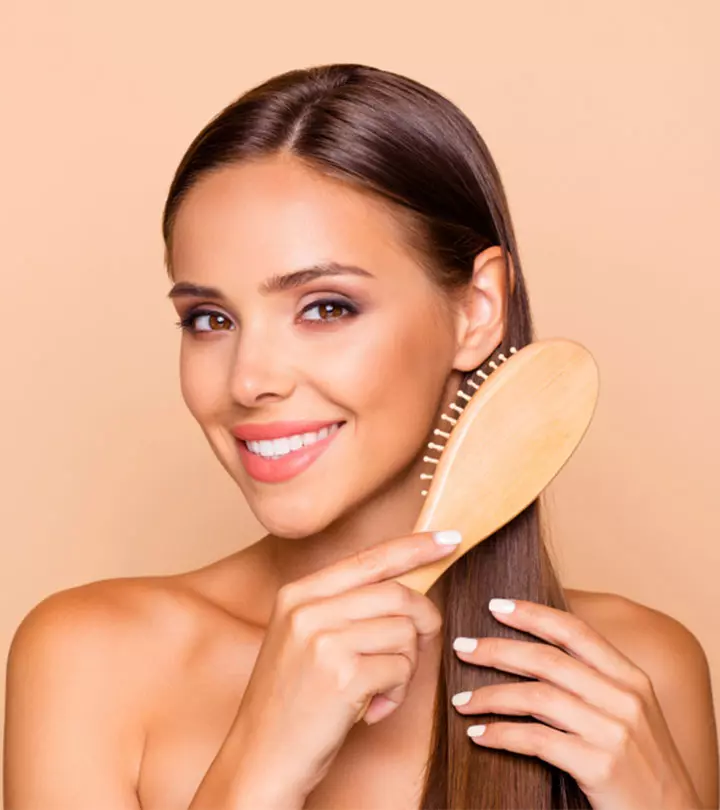
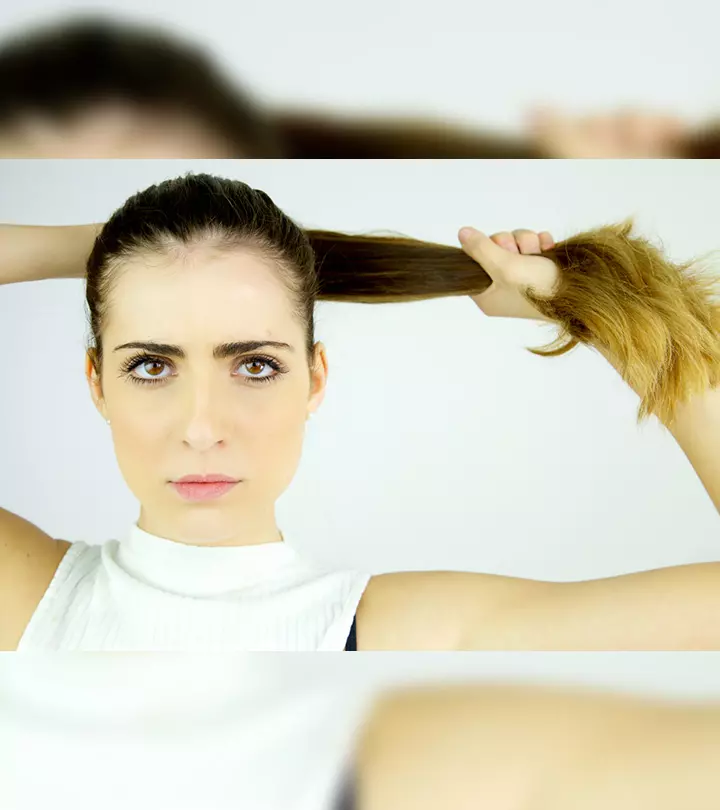

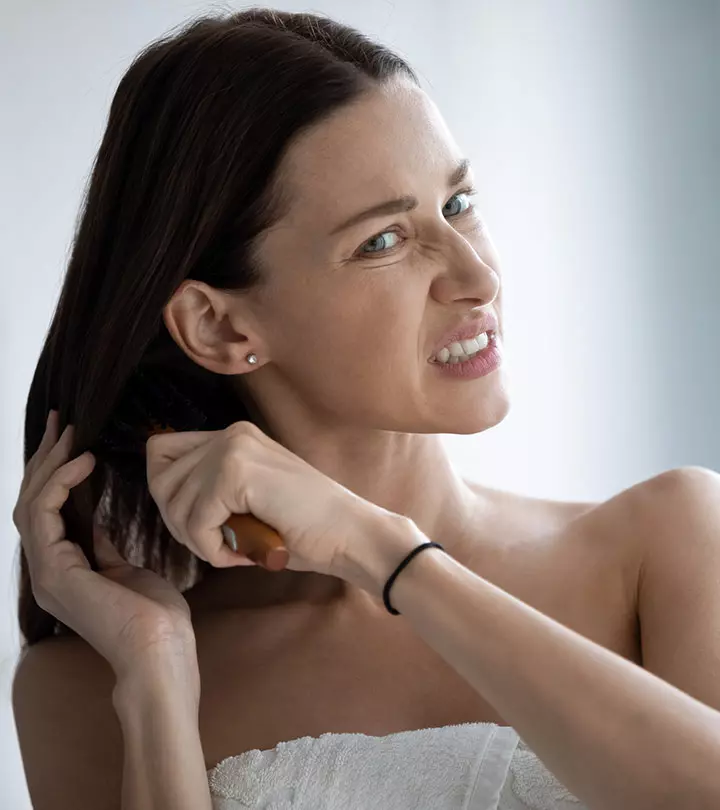
Community Experiences
Join the conversation and become a part of our empowering community! Share your stories, experiences, and insights to connect with other beauty, lifestyle, and health enthusiasts.